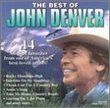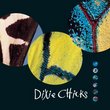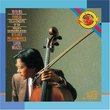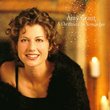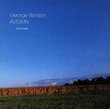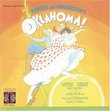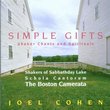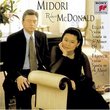| All Artists: Luigi Boccherini, Hans-Martin Linde, Wouter Moller Title: Cello Concertos 1 7 & 9 Members Wishing: 0 Total Copies: 0 Label: Virgin / EMI Records [All429] Release Date: 2/13/1996 Genre: Classical Styles: Chamber Music, Forms & Genres, Concertos, Historical Periods, Classical (c.1770-1830), Instruments, Strings Number of Discs: 1 SwapaCD Credits: 1 UPC: 724356123922 |
Search - Luigi Boccherini, Hans-Martin Linde, Wouter Moller :: Cello Concertos 1 7 & 9
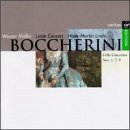 | Luigi Boccherini, Hans-Martin Linde, Wouter Moller Cello Concertos 1 7 & 9 Genre: Classical
|
Larger Image |
CD DetailsSimilarly Requested CDs
|
CD ReviewsBoccherini the Divine Cellist ... Leslie Richford | Selsingen, Lower Saxony | 10/10/2004 (5 out of 5 stars) "The Linde Consort directed by Hans-Martin Linde made a number of recordings for EMI in the 1980's. This one, with Wouter Möller as baroque celloist, contains three of Luigi Boccherini's most popular cello concertos. No. 1 is scored for strings, oboes and horns; No. 9 for strings and horns; and No. 7 for strings. Wouter Möller plays a superb-sounding baroque instrument, from which he draws, during the cadenzas, both amazingly low and incredibly high tones. But these are embedded in some very pleasing, rhythmically attractive music of the kind that had one English music historian claiming God would listen to Boccherini if he had the choice! Of particular interest is Cello Concerto No. 9, which is here restored to its original form and sounds for my mind much better than in the usually heard 19th century version. Particularly the last movement (Rondo: Allegro) is absolutely wonderful and can tempt one to set the CD player to 'continual repeat'! Recommended all round!" Some of the best cello anywhere! R. Miller | Toledo, Ohio USA | 03/22/2008 (5 out of 5 stars) "This is a beautiful CD. I am quickly growing to appreciate Boccherini. So much music from this period is self-consciously serious, and later, in the 1800s, it got (to my taste) way too serious. So it's a real treat to hear a composer who simply loved the music for its own sake, who creates melodies, counterpoints and orchestrations just because they sound great -- not to mention original. His music is, in that way, a throwback to a lot of late medieval and renaissance music. Not that it's in that style, but just in the sheer fun of it!
In his composition Boccherini seems to love the sound that the instruments will be making rather than the sound of his own composition; being an accomplished cellist probably made this easier -- but then most of the composers were accomplished on some instrument or other. One thing that comes through is the spirit of improvisation; there's a good bit of the jazz musician in Boccherini. It was true back then that much of the music, especially music that involved solo instruments -- such as in sonatas, concertos or small ensembles -- was improvised. Almost as much of this kind of music was transcribed from the performance, as was actually composed beforehand. This shows through in the Boccherini pieces that I have heard, in that he loves the sheer beauty of the sound of the instruments he composes for more than he loves to hear his own cleverness or sophistication. In that sense he seems very much in synch with our jazz. Another reviewer has commented that, in a sense, Wouter Moller's cello itself is the star of the show here, and he is right. What an instrument! I can only think of a couple other CDs that I have heard where this is true (the harpsichord on the St-Martin-in-the-Fields/Kenneth Sillito version of Handel's "Berenice" is the only one that springs right to mind). This is not to say that this is unsophisticated music. Boccherini is a master at interweaving melodies and other elements. Some compare him to Haydn. He doesn't seem very similar to Haydn to me at all, more to Vivaldi. But where Vivaldi's skill is in the overall impression, Boccherini's is in the immediate elements. In a military analogy, Vivaldi is better at strategy, Boccherini is better at tactics. Vivaldi's impression is of a beautiful whole. While the whole effect of a piece of Boccherini's music is nearly as unified, the joy of Boccherini is that there is always a delight just around the next corner! But what I love about both men is that they both seem to write more often than not for the joy of the music, rather than to impress anybody with anything." |

 Track Listings (9) - Disc #1
Track Listings (9) - Disc #1